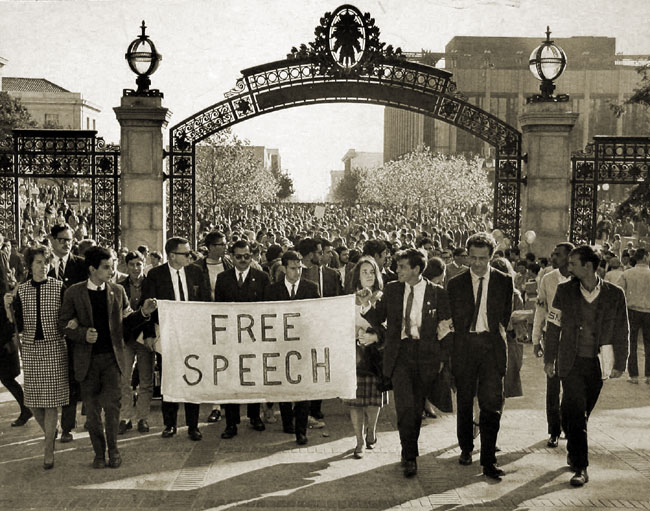Fifty years today, students at UC Berkeley blockaded a police car on campus to prevent the unjust arrest of a recent graduate, Jack Weinberg, who had been leafleting on campus. Here’s how I described the events in my dissertation:
On September 14, 1964 the dean of students of the University of California at Berkeley, feeling political pressure from local conservatives, announced new restrictions on student activity on university property. Tabling by student groups would now be strictly regulated, and leafleting, speech-making, and the sale of publications relating to off-campus organizations would be banned. A broad-based student coalition called the United Front (UF) quickly rose up against the ban. They held their first protest on September 21, and the next day the campus student government, the Associated Students of the University of California (ASUC) voted 11-5 to ask the Regents of the university to overturn the policy.
When the administration refused to lift the ban, members of the UF began tabling in defiance of the policy. Their protest rapidly gained momentum — when five students (representing SNCC, the Young Socialist Alliance, and the campus political party SLATE) were cited for violating the tabling policy, hundreds joined them in a march to the dean’s office. Three students who helped to organize the protest were added to the original list of five violators, and before the day’s end it was announced that the eight had been suspended from the university. The march had by then turned into a sit-in, and the UF had been given a new name — the Free Speech Movement (FSM).
More tables were set up in the heart of the campus the next day, and the administration escalated their response. They approached one of The Berkeley Free Speech Movement at Fifty |:

